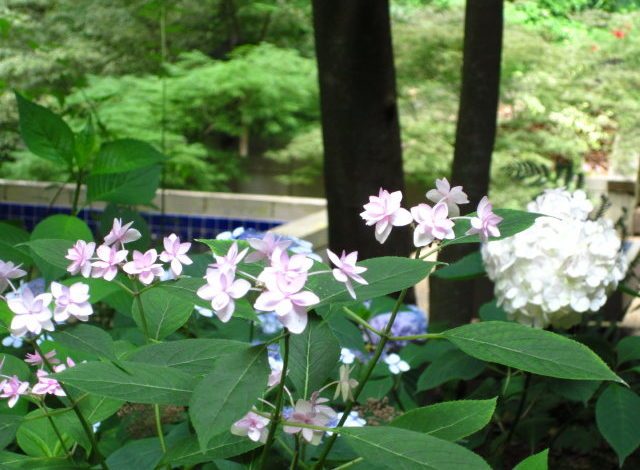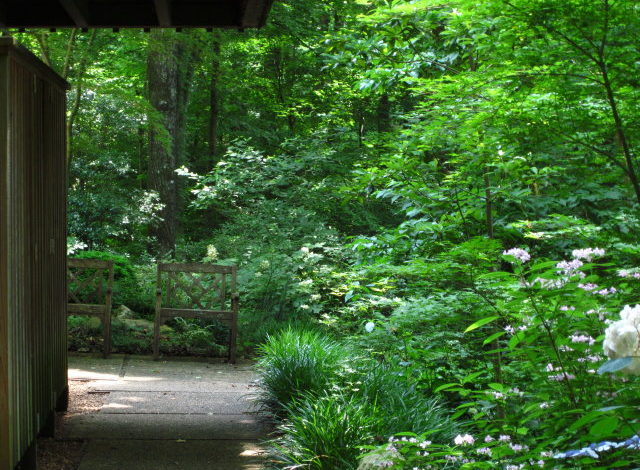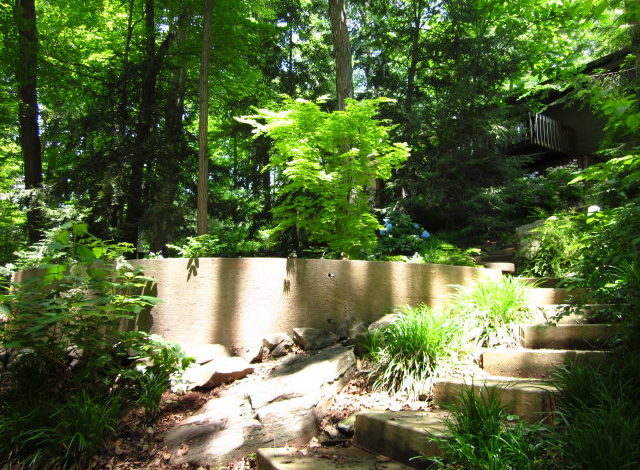A Semester @ Sea Afterword
It’s not been easy to come home. After nearly three weeks at home—during which time I struggle mightily to write this Afterword until I get going on it and then can’t do anything else because it so enthralls me to recall—I realize that there’s history at home and a sense of place that is a part of me that will often be at odds with what I experienced on this voyage for a long time to come. For over four months while at sea it is exhilarating to learn new history and geography and “drop in” on people and places as a visitor—an observer deeply impressed and frequently overwhelmed by cultural and economic differences but a visitor nonetheless. When I come back, those differences come into even sharper relief and smack up against the easy comfort and familiarity of home.
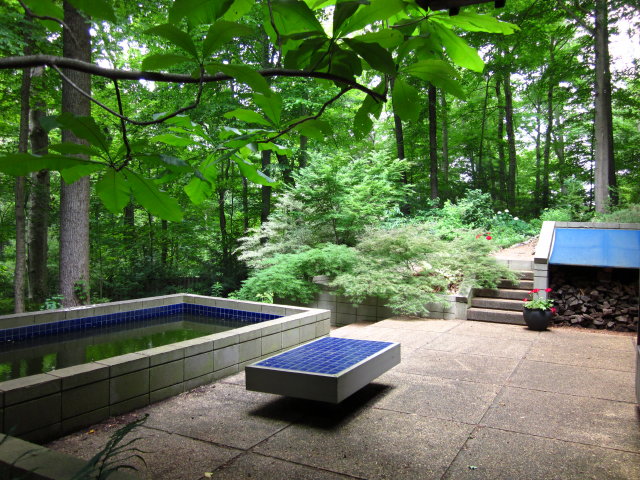
The theme of the Spring 2010 voyage of Semester at Sea is Sustainability. That means we spend months studying the many serious issues related to climate change, energy, waste, environment and development. I feel like a bear when I first come home so I try to keep my claws sheathed with family because I know I must seem very grim. But the contrast between all we have in our country and how little others have is so great that it is hard not to react to almost every occasion as another lesson in feast or famine and wonder why we can’t do more to distribute those more fairly. Unfortunately, I don’t have a good answer so my frustration is less with everyone else than with myself.

When I greet people on my return they ask variations on the same two questions: “Did you have a good time?” “Did you enjoy your cruise?” [Whatever it was, I can assure everyone it was not a cruise.] Frequently, there are corollaries: “What was your favorite country?” “What was best?” These seem like the obvious questions anyone could be expected to ask but they prove very difficult to answer after a long voyage around the world. Instead, I wind up answering that my clearest sense is only how lucky and spoiled we are in the United States, how embarrassing it is to realize how much of the world’s resources we take up as our own, and how much more I now worry that we be fit and fair stewards of all this fortune.
That sense of fortune-cum-burden is underlined by how we feel when we re-enter the USA: The port of Fort Lauderdale in Florida in early May is not yet in the grip of tropic heat, there’s a lovely breeze on the beautiful day, and there are a mere two plastic bottles bobbing in the harbor as far as the eye can see about the ship. (Plastic of every kind becomes a major issue in traveling because it pollutes so widely everywhere. I actually haul every plastic bag handed to me all the way back home in my luggage. After what I see, I’m unwilling to discard a single one anywhere along the way.) On the other hand, we are reminded how little we’ve done to wean our nation off dependence on oil when we hear news about an underwater oil rig disaster in the Gulf of Mexico and wonder if it will be worse than the Exxon Valdese. At the same time, it is impossible not to be deeply affected by the tearful reception that awaits the students—their families hold signs of welcome in parking lots outside the terminal throughout the several hours it takes the 1,000+ people on our ship to clear customs and collect luggage. But I also recall all the orphaned children we’ve met in the course of our journey—most of them orphaned under horrific circumstances of disease and war—and how they may never meet with such a welcome anywhere by anyone.
I am fortunate to catch up with extended family and friends in Coral Gables and Miami for a few days after disembarking. There are so many choices at the first deli my sister takes me to on Miracle Mile in the Gables, a place I once knew well, that I am paralyzed with indecision. (Language is the factor of indecision in foreign countries but sheer number of choices is what does you in when you return. Two leaves of lettuce or three?)
Miami looks much improved from the days when I was a student at the University of Miami, with much of the urban sprawl now filled-in and looking more like a city and less like a collection of suburbs. I visit Fairchild Gardens, recovered beautifully after its last hurricane battering, with an old friend who is partly responsible for that coherence and vibrancy since he worked for many years as the city planner. He’s also full of news about a big gathering of Irish family that will take place back home at the Cathedral in Armagh for the wedding of a niece. I know them all but will not be able to go. Still, I can virtually see that gathering as he talks and I’ll be there in spirit for sure. Another friend will soon be installed as the new Archbishop of Miami, a challenging post he’ll do well; I hope Miami realizes it is lucky to have him. I am honored by a lunch at the restaurant of a Cuban family that is as much a part of my personal history as my American, French, Canadian and Irish families and I eat my fill of my favorite Cuban foods while we talk for hours into the afternoon. They play one of my organ CDs in the background which is pretty amazing but Cubans’ joie de vivre can stand up to the music of a grand pipe organ better than almost any other people I can think of. Finally, I speak at length with friends involved in the Haitian relief effort. Their discussions are like listening out loud to what I’ve usually been unable or unwilling to express about suffering and deprivation at its most extreme during our trip. What they say is both surprising and discouraging for the “fix it” Americans we are, but is unavoidable from both my experiences on this voyage and their many work trips abroad: We can help with building capacity but we cannot fix at one fell swoop. So what does that mean for how we help in emergencies, and in the longer run as well? Perhaps it means that we do even more to train people in appropriate technology who will go back to their countries to help and not just we in their stead. In the other direction, US students need to spend “gap” years in service abroad like so many Canadian and European students do in order to learn more about the developing world. On the other hand, sometimes being told we do relief work badly—and should leave everything to the people in the countries we assist—is not entirely convincing. Some of our students learn an important lesson when they go on their own to a remote area and hear diametrically opposed stories of needs from a tribal leader in Ghana and his people—and that is after being cautioned by a distinguished lecturer from Ghana that we Westerners should not superimpose our cultural ways on theirs. But “cultural ways” is sometimes a euphemism for prevailing practices that take advantage of tradition for less than felicitous ends and that shut out entire classes of people. The tribal leader wants money that he says is critical to help his people; but his people tell the students that they need not money but specific tools, material and knowledge and that they will never see the money from their tribal leader. Paternalistic authorities may sincerely believe that they know best—and, certainly, they may—but they may also not be sharing resources and opportunities with their people because of enduring, elitist entitlement. Not an easy nut to crack, this.
I get sick with a cold for the first time in my entire voyage—in Miami—and I have to wonder whether we don’t now have American superbugs that penetrate natural immunity far more readily than what most of the rest of the world’s population shares. Of course, our ship doctor and nurse practitioners do a stellar job of teaching us how to stay healthy in all kinds of conditions. But I still get sick at home. Oh, well.
If you can’t actually travel to learn how the rest of the world lives, an excellent way is to read the world’s literature. After all, it is how we try to understand the people and places of our own country. All through the course of this journey I read as much of a country’s creative writing as I can. In most cases those works of literature help me understand in a much more fulsome and thoughtful way—albeit indirectly—what all our experiences and lectures cannot do alone. (I also discover just how much of the world’s best literature is not even translated into English—a fact that says much about all of us while it is truly a loss for all of us.) When you travel with over 1,000 people to visit billions more people, you quickly realize that each person has a story to tell. Best would be to live a life listening to each one. Second best is to read and view those stories in a country’s literature and arts.
But I’m always getting ahead of my story: When I arrive back in Knoxville it is as though Tennessee wants to show me just how beautiful it can be at its very best. (I am one of those people who always has it in the back of their mind that they’re going to have to move to another country if we can’t make our American society a more humane and sustainable one, and certainly so as I become old and older. Having time at sea to think about this attitude, though, it becomes clearer that instead of running away I should just do more to change this state of affairs. As one writer has put it in the research I’ve begun to read, perhaps it is the latest mission of many bequeathed to boomers that they should also undertake to civilize the suburbs so that older people can live in their own homes throughout their old age while also ameliorating isolation and finding better occasion to live in community with neighbors, family and friends.) Where I live now, in Lakemoor Hills, is a good place to consider this because time and time again we see a property deteriorate while an elderly resident becomes more isolated by frailty and the loss of friends and family until one day they remove into a nursing home. Before the recent poor economy, houses in our old neighborhood turned over quickly but that is no longer the case and homes can sit empty for a long time while an elderly person makes the transition to assisted living far away from their home. That is not a good end for either the old person or for our neighborhood.
At any rate, leaving my home in this gorgeous, verdant countryside hardly seems possible to contemplate in mid-May 0f 2010. Perhaps because I fly directly from Fort Lauderdale instead of connecting through Atlanta, the plane comes in over the Smoky Mountains on a clear day and they appear in the early evening light as green as Ireland. I can’t remember anything that resembles this approach on arrival in Knoxville but maybe I’m just paying better attention on this flight. There have been abundant rains all winter and spring long, with no late freeze, so everything is lush and in luxuriant bloom. Temperatures are cool and not rushing to heat as spring can often do in East Tennessee. Roses and French hydrangeas, in particular, are superb in our garden, called Blue Notes, and the air is fragrant with blossoms and freshness. Only one dead tree outside (looks as though it may have sat in water too long during a downpour when a gutter wasn’t cleaned quickly enough) and one nearly-gone, forgotten, tender Soeur Therese hydrangea in the garage that revives with a bit of care. The phoebes and flickers that nest every year in our very tall trees in Blue Notes are out on fledgling runs with their young swooping in flight from one high branch to the next. The frogs are in full throat symphony along with the birds.
It is better not to say much about the first 15 hours of cleaning I do when I arrive home. It has, after all, been over four months that I’ve been away and after being tempted to run about and scream like a banshee I decide instead that it could be worse. Friends tell me my standards for housekeeping are too high and maybe they’re right. I blame it on the Irish washerwomen who must lurk somewhere far back in my mother’s genetic makeup. (I know, I know … I should just savor this back-home experience just like any other overseas. Not many people get to see all of their dishes in a kitchen sink completely enshrouded by spider webs.) In any event, I no longer have a cabin steward so I just get on with it.

While cleaning is underway, our cat Coco alerts me to a baby raccoon high up in the huge beech that shelters our home.
My compulsion for cleanliness and tidiness is likely worse for the experience of watching the ship’s crew for months on end repeatedly and fastidiously straighten, clean and polish every minute of the night and day. In fact, I do most of my practicing on one or other of the ship’s three grand pianos in the wee hours of the night when the students finally retire off the instruments. And most of the time I realize a crew nearby is working in time to the music. Occasionally they even take up a tune and sing without missing a beat or a stroke of the duster or broom. Nice. I become really accomplished at a concert version of “It’s a grand night for singing” although I have no clue what the words are that they’re singing since they can be in many languages far removed from the ones I know. I get the feeling they make many of the lyrics up, though, since sometimes they’ll break out in muted laughter afterwards. (The captain runs a very disciplined ship so the crew is always mostly seen and not heard.) I don’t take any of it personally even if the tune is very serious dead-white-men classical.

Our young cat, Coco Chanel, is immediately put on a diet along with dog Daisy, my mother’s old Jack Russell terrier and now Kenneth’s bosom buddy who rides shotgun in his truck. With the best of intentions, Kenneth has gradually overfed both animals and let go of their schedules. We return to portions and schedules pretty quickly and the animals, at least, adapt readily. Kenneth has to think about it and weigh in the balance the value of order and regular meals.
The housekeeping isn’t only a matter of cleaning and organizing in my own fashion, it’s that I need order because I otherwise can’t find anything. A small cabin on a ship has the clear advantage of ready access to almost everything, no matter how lost in that small space. For the first few days at home I nearly drive myself mad wandering the house looking for things I need to work with. Other colleagues and friends from the ship note the same phenomenon when they arrive home.

One of my first trips in the car—it has been such a treat not to drive for so long although watching crazy taxicab drivers around the world has its moments of terror—is out to Lanntair Farm to visit Bilbo’s gravesite. My old horse, Bilbo Baggins, died at the age of 32 the month before I left. A friend had given me some daffodil bulbs in late December to mark his grave; Kenneth was kind to plant those for me after I left and he reported that they bloomed in early spring. I also check on our ancient barn cat, Tibet, who is even more vocal than usual because she’s very old and her sister, Egypt, has died in the last year.

There are surprises at home, especially the news that Lanntair Farm will be sold again. This is a momentous development because Kenneth has continued to rent the barns there since we sold it the first time in 1999. With the 15 years he was in the barns while we were owners—added to the 11 years since we sold the farm—the storage amounts to an accumulation of 26 years in 5,000 square feet. Those of you who know Kenneth know what this conglomeration looks like. Lanntair’s current owners are two doctors who, like us previously, have come to the realization that even a 17-acre farm is a lot of work in a society where it is almost impossible to find farm workers to help. They put the farm on the market and it sells almost immediately to a wealthy corporate executive and his foreign-born wife who find it to be a unique combination of pastoral and private. Can’t argue with that. I’ve missed it for years. I will always miss Lanntair Farm.

The loss of the barns for storage sets in motion a lot of examining of alternatives—especially vis a vis the rental property and close-in vacant lot we own in Hot Springs, North Carolina. The advantage there is that Asheville is a much better market for Kenneth’s large stock of antiquarian holdings, when and if he will part with them. When we go over to look at an alternative piece of property that might be an option for relocating Kenneth’s business and collections to Hot Springs, it is another moment when my voyage pops up in how I view where I am now. As we drive up to the simple chained and locked farm gate to a stunningly beautiful, wide open, piece of riverfront property, I wonder whether the property will ever be “razor wired” as so much that is beautiful or historic or private is fenced in other countries of the world. People in those countries often tell us that not so long ago nothing was brutally secured in their homeland. A friend of mine reacts to my telling about this by mentioning the phrase “banana republic” but the truth of the matter is that the old “banana” autocracies were benign in comparison to the kind of severe extremes of wealth and poverty that broken glass, pikes, barbed wire, electric fencing and razor wire now represent. Will American society also wind up that way?

Intellectually, I understand the arguments in favor of globalization, but so far it is not helping the peoples of a great many poor countries in the world. Vast expanses of plastic waste, pollution and ubiquitous cell phones constitute the veneer of modern development superimposed on patterns of relationships, economy and culture that date back a couple of centuries or more. That is, a farmer still farming as his ancestors would have done in the 1700s now has a cell phone in his pocket, if little more. It can be a peculiarly devastating combination. Some societies will work their way through, in American fashion, beyond the more obvious signs of waste and pollution just as we’ve got beyond throwing away quite so much out our car windows as we tool down highways. But in more substantive terms it is hard to get around the thought that there are likely to be many violent confrontations on the road to more progressive societies and more sustainable futures.
The word we hear the most on our voyage is flexibility. It is a handy attitude when nothing goes according to plan on land, however much it may on the ship, where control is the ultimate watchword for safety. Back home, I now think about the flexibility of an individual in their own journey of life and work because it is impossible to know what the future holds for any of us. Some of us have more of a gift for rolling with the swells than others and you quickly size-up people while traveling for that element in their character. But societies also can be inflexible such that they make it almost impossible for people to make better or different choices for themselves and their families. Tea Party angst wants to return the United States to romantic notions of our past minus the inconveniences of the past and with what seems an even stranger narrow-mindedness when you return to the States laden with the positive notions that constitute the bigger part of the constellation of dreams about the United States in the rest of the world: That we are a diverse, deliberative people, educated, fit, generous, tolerant, hopeful, fearless, hard working and deeply compassionate.
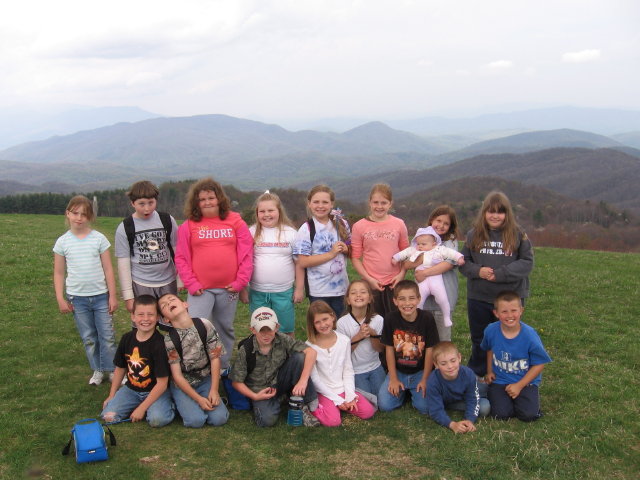
I have real hope that we will manage to uphold those dreams if we can get past the willful ignorance, the calculated cynicism, the arrogant greed and the entrenched interests of money. (Everywhere we travel people mention Obama as a totem or talisman, really, for this hope. Often his name is the only word they know in English.) Many students on our voyage are amazing young people. Easy money and non-stop media has spoiled them for the harsh future they seem to be in for, in my view. But even if I always think that we adults could be doing much more to give them better tools and prepare them for a complex and hard world, they can be remarkably capable. On a front closer to home, when I go to Hot Springs just after returning and prepare a short show-and-tell for the students at the Hot Springs Elementary School who have been following me around the world, I can readily see evidence of very young students who are engaged, smart and quick to draw inferences from what they know, despite the fact that they all live in a relatively isolated, small rural community in western North Carolina. They have first-rate teachers who really care how they turn out. Like my husband, who is also from the area, many will be the first in their generation to attend college, if they can. Even though most have never traveled any distance at all, let alone to a foreign country, they put together in their brains and imaginations answers for the many questions I ask them while I tell the story of my journey within the context of other people’s lives in foreign lands. And they answer correctly probably the most essential point of information for any traveler: “What is the single most important word to know how to say well in advance in the language of the country you are visiting?” [Answer: See the final page of this Afterword.] In the fall I’ll prepare additional short modules on geography and history for them and I look forward to that.
But back to those questions . . .
I had a “good time” all of the time in the sense that I felt adventurous, safe and enlightened most of the time. For that the shipboard community owes a great deal to the knowledgeable, experienced, disciplined crew and leadership of our ship and Semester at Sea. When one moves over to the question variation as to whether I enjoyed myself, that becomes more difficult. Especially after the first three months, I begin to miss family, Kenneth and our animals terribly and—while miraculous to have at all in many instances—slow and cumbersome Internet access drives me to distraction and frustration a lot of the time. On the other hand, I am a minimalist and—although I’d love to have my Steinway piano and my book library somewhere with me—I am perfectly happy in a small cabin with housekeeping and regular meals provided by very capable and caring staff. Working many hours and attending additional seminars and meetings still left chunks of time with no other ordinary obligation and I could read and write all the hours I could spare from sleep. Writing a journal and sharing those chapters with good friends and family back home made me feel much less alone throughout the journey. And, of course, I went on the voyage with longtime friends and made many new friendships that will, I am sure, last a lifetime.
If you stretch the meaning of the phrase “to enjoy” to include the opportunity to constantly reassess what one thought one knew to be the facts and the truth, this voyage was supremely enjoyable at the same time as it was disconcerting. Regardless, it is truly a gift to be able to suspend the job of living for the self for a while, without the usual obligations of self-absorption that home life expects, and to have the time to think and make connections that are both bizarre and meaningful. In Cambodia, it is a tradition for men in their fifth decade of life to leave family and work and enter the monastery for a year. Reportedly, they return to both at the end of the year, often with a much different attitude and set of priorities for how to finish the end of their lives. (One hopes that that includes giving their wives a year off, too. But it likely doesn’t. The summary world statistic that can really turn you into a feminist after observing how hard women work—and how often men stand around or just roam about freely with friends—is that women do two-thirds of the world’s work for one tenth the compensation while owning a mere one one-hundredth of the means of production.)
Back to those questions . . .
The most disturbing countries to visit were India and Ghana in terms of the sheer scale of the destitution, corruption and lack of infrastructure. Brazil and South Africa have far more in the way of resources and infrastructure but continue to deal with enduring problems of the past—especially the history of slavery and apartheid—as well as the tensions of being strung between small, insecure classes of wealth and enormous, insecure masses in abject poverty. China, Vietnam and Cambodia have people who work so hard without complaint that it can be difficult to know exactly what their lives are really like but they give off the undeniable intention that their lives tomorrow, and especially of their children, will be better.
Mauritius is my favorite country, hands down. Firstly for its beauty, which is astounding, and secondly for its society, which is comprised of countless races, nationalities and cultures—all of whom work and live in relative harmony in a progressive social order that cares for both people and environment without the extremes of poverty and extravagant wealth we see in so many places hard up against each other. Mauritius is the only place in all our travels where while hiking friends and I see volunteers picking up trash in a national park reserve and it reminds me of what I do in our neighborhood at home all the time. The less trash any visitor sees the less trash there will be because people most freely throw down when they see trash already there—zero tolerance where it works best. Mauritius seems to have learned these lessons and others far in advance of many other countries.
My next favorite country is Japan, also for its beauty and for its exquisite care as well as its discipline, enterprise and community of shared values. Quite simply, there is no trash in Japan. But there are widespread practices put into place due to sustainability considerations and always exactingly arranged that Americans are not accustomed to and might find incongruous. Examples: The Japanese garden in the tiniest spots imaginable, even in plots alongside busy thoroughfares where no passerby disturbs them. Wash freshly laundered hangs on back balconies and porches to dry. And solar hot water heaters rest on nearly every rooftop. Whatever it is, it is far tidier than anything anywhere else in the world. And, suddenly, I realize how messy my exuberant garden back home must seem to the Japanese graduate student in music who lives with us—especially when I don’t get those falling leaves off our walkways quickly enough.
I am a walker—who feels particularly penned-in on the ship because it is not possible to walk all around it and I don’t like the routine of exercise equipment—so my assessment of our ports and countries is heavily influenced by whether or not we can safely walk and find our way about. On that score, Hong Kong is at the top of my list. When I come home, it seems the most luxurious thing to walk out the door and walk.
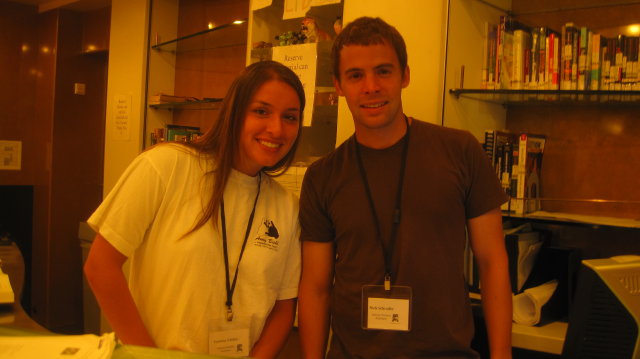
But beyond the country visits, what I think most of us on this journey value the most about our experience is the shipboard community we live among. Almost never in our modern lives do we have the chance to live with the same set of 1,000 people for an extended period of time in a large but relatively confined space. Four months is enough time to learn to respect and even admire someone who, on first meeting, you think you won’t care for or can’t stand at all. It’s enough time to discover the person—and learn the back stories of many people—well enough to begin to understand that judging quickly and superficially is not good.
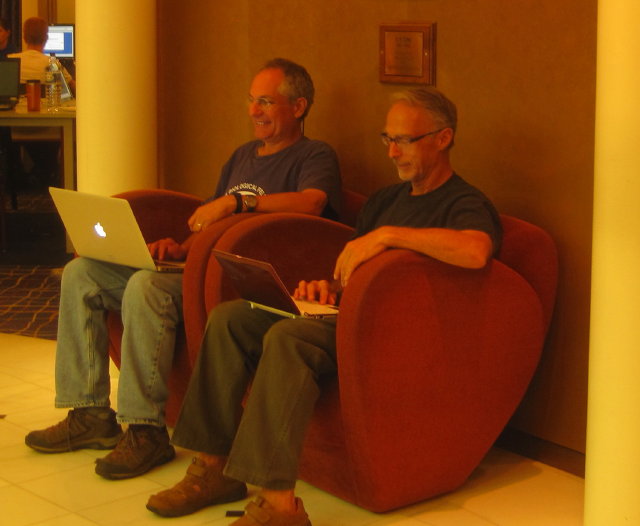
Repeated encounters with people struggling everyday to come to terms with new ideas and experiences—along with their quirks, distinctive bags of tricks and life wisdom—mean that the discussions range wide and deep and they can continue over the course of many weeks, especially during the many meals shared on board and in port. One of the most thought-provoking notions I heard expressed in what turned out to be many ongoing discussions originates with one of the economists on board who suggests that it will be vitally important for a sustainable future to “get the price right.” In other words, that so much of what we think we need is not priced accurately, so that when we try to cut budgets or prioritize or cap-and-trade we are not yet working with real numbers but with subsidized figures that don’t take into account their total cost. I find it interesting because it also helps address issues related to the entitlement that seems increasingly to permeate all levels of our society—far beyond the most disadvantaged and deserving.
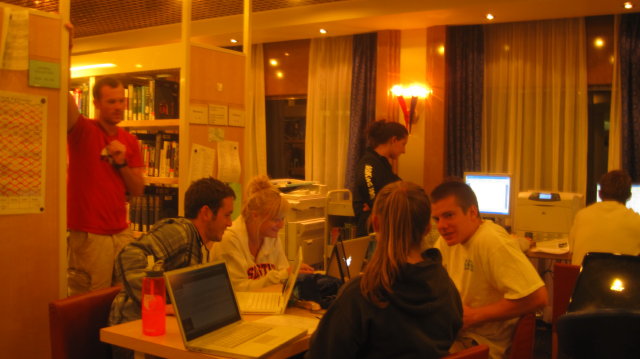
Far better than my comments here, my friend, Warner, the University of Virginia librarian and longtime friend I assist on this voyage, eloquently expresses how much the people we travel with come to mean to us when he gives the final address in the last Global Studies class of the semester onboard. We all know how many months—nay, years—the deans of the voyage have spent to assemble a college of faculty and staff who are up to the challenge of an instant campus at sea. We are all—faculty, staff, students, crew—the beneficiaries of this lasting community and leaving at its end is hard.
As for what I cared for the least: It has to be the suffering, grinding poverty and exploitation of people with no other choices—especially women, children, and the disabled. But what I detest even more has to be the self-serving, self-satisfied rationale I hear too frequently from all kinds of people that the poorest nations are also the happiest because they have souls and spirits we material creatures can only dream of. Well, I don’t either buy that or believe that.
There is, believe it or not, an Index of Happiness—discussed at length in a most entertaining way by Eric Weiner in The Geography of Bliss—but it paints a much more complicated picture of those who are happiest as those who live without extreme wealth or extreme poverty in their countries. There is also what is known as a Gini coefficient that weights the levels of difference between wealth and poverty in a society. Many of the happier countries lie in the middle of that spread and, as one might expect, at neither extreme of rapacious greed or utter deprivation. Above all, the happier countries appear to be those that value a greater good and a common goal and not merely material riches for their own sake. Happiness for people in many countries is having a job that provides for their family and gives them hope that their children will have a better life. Many of us get to know crew members on the ship and we invariably tell them at some point how sorry we are that they have to go nine months or more at a time without seeing their families. But they tell us that they feel they’re lucky to be working a good job with good co-workers. For sheer happiness, one of the “happiest” days I spend on the whole trip is in a Brazilian guesthouse on the beach listening to a small group of staff working in the kitchen after a holiday. They are regaling each other with tales of what they and their families did the day before. They are laughing hysterically and I find myself laughing out loud along with them while I read in a hammock from a balcony above them even though I have only the barest clues of what they’re saying in Portuguese.
Finally, what troubled me the most on this journey is how concerned the peoples of the world are that the United States be genuinely good and great—and that our students be the next generation of Americans to do its best to be smart, capable, fair and generous in a world imperiled by so many problems and conflicts. People genuinely want the USA to lead by example. Given all the damage of the last few years internationally, we were surprised countless times by how welcome we felt as Americans—even by people who had a great deal of cause to not care for us after what we had done, or not done, in their homeland. Time and time again, a local person disturbed by the levels of corruption in their own society would tell us how inspiring it was that there was no corruption in America. To which we would rejoin: Well, there is, in the indirect form of political systems and elections that are awash in money and overwhelmed by the influence and special interests of those with expensive stakes in the status quo. It is a problem that we must come to grips with or our entire society will only reward those with money and position—and not those with talent, drive, and new ideas to change our economy and society for the better. We need to do better. We have a lot to live up to.
And I need to wrap this journal up. Stop the sermonizing and move on to actually doing some of what I’ve thought about doing in the last few months. This journal’s Prologue based on Peterman catalog copy—there are days when even I think I read too widely—was right on: Being at sea for a long time does make you think about what you do when you get back home on land, if only because there’s always a thought in the back of your mind that you may not get back across that immense expanse of water. While busy with work on this voyage, I got my share of time to sit and watch the magnificent seas we traveled through. Perhaps only the highest mountains of the earth give you the same perspective on how enormous is our responsibility for stewardship of the earth at the same time as you feel so small and inadequate to the task.
A journal is a good habit to get into so I will be trying to continue and I recommend it at every turn to all my busiest family members and friends. If you need inspiration, read one or two of the many excellent memoirs that have been written in recent years, or even classics like Vladimir Nabokov’s Speak, Memory or William Zinsser’s Inventing the Truth: The Art and Craft of Memoir. Two volumes of memoir written by Zimbabwe’s Peter Godwin—Mukiwa: A White Boy in Africa and When a Crocodile Eats the Sun—are among the best books I’ve ever read. Those who are more visual will be spurred on by the recent When Wanderers Cease to Roam: A Traveler’s Journal of Staying Put by Vivian Swift. After all, as one of my shipboard friends says: If you’ve nothing to write about at the end of the day maybe you should have spent the day differently. There is so much to be grateful for in our rich and bountiful American lives and so many ways to waste our time on earth. Writing is thinking and there’s no cost or waste in that.
To all of you who made it possible for me to make this incredible voyage—and to all those I learned from all along the way—I can only say:
Gracias
Mahalo
Domo Arigato
Xie Xie
Mh Goi
Cam O’n
Ar Kun
Shukriya/Vandri
Merci
Dankie/Aise/Asante/Enkosi/Ngiyabonga
Ogiwadong
Obrigado/Obrigada



